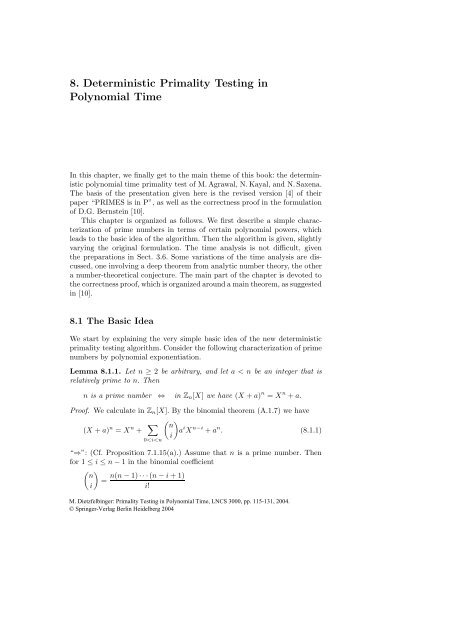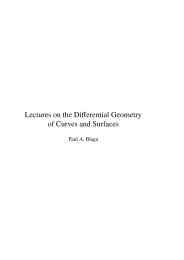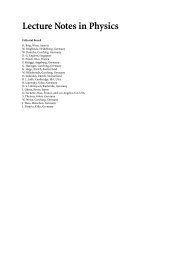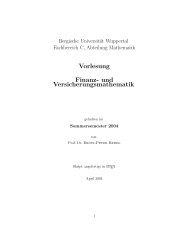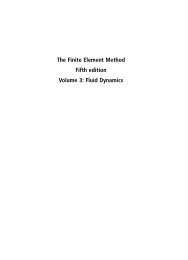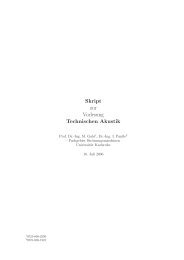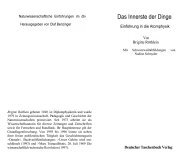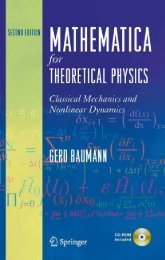Dietzfelbinger M. Primality testing in polynomial time ... - tiera.ru
Dietzfelbinger M. Primality testing in polynomial time ... - tiera.ru
Dietzfelbinger M. Primality testing in polynomial time ... - tiera.ru
Create successful ePaper yourself
Turn your PDF publications into a flip-book with our unique Google optimized e-Paper software.
8. Determ<strong>in</strong>istic <strong>Primality</strong> Test<strong>in</strong>g <strong>in</strong><br />
Polynomial Time<br />
In this chapter, we f<strong>in</strong>ally get to the ma<strong>in</strong> theme of this book: the determ<strong>in</strong>istic<br />
<strong>polynomial</strong> <strong>time</strong> primality test of M. Agrawal, N. Kayal, and N. Saxena.<br />
The basis of the presentation given here is the revised version [4] of their<br />
paper “PRIMES is <strong>in</strong> P”, as well as the correctness proof <strong>in</strong> the formulation<br />
of D.G. Bernste<strong>in</strong> [10].<br />
This chapter is organized as follows. We first describe a simple characterization<br />
of prime numbers <strong>in</strong> terms of certa<strong>in</strong> <strong>polynomial</strong> powers, which<br />
leads to the basic idea of the algorithm. Then the algorithm is given, slightly<br />
vary<strong>in</strong>g the orig<strong>in</strong>al formulation. The <strong>time</strong> analysis is not difficult, given<br />
the preparations <strong>in</strong> Sect. 3.6. Some variations of the <strong>time</strong> analysis are discussed,<br />
one <strong>in</strong>volv<strong>in</strong>g a deep theorem from analytic number theory, the other<br />
a number-theoretical conjecture. The ma<strong>in</strong> part of the chapter is devoted to<br />
the correctness proof, which is organized around a ma<strong>in</strong> theorem, as suggested<br />
<strong>in</strong> [10].<br />
8.1 The Basic Idea<br />
We start by expla<strong>in</strong><strong>in</strong>g the very simple basic idea of the new determ<strong>in</strong>istic<br />
primality <strong>test<strong>in</strong>g</strong> algorithm. Consider the follow<strong>in</strong>g characterization of prime<br />
numbers by <strong>polynomial</strong> exponentiation.<br />
Lemma 8.1.1. Let n ≥ 2 be arbitrary, and let a


